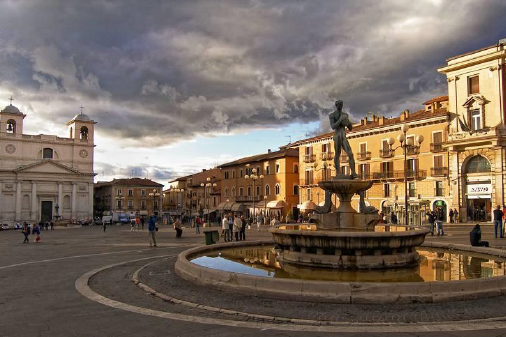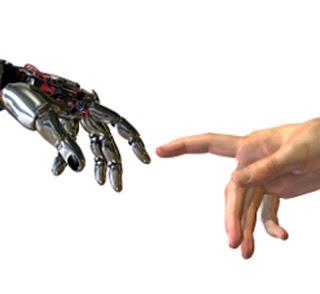
Entrepreneurial excellence in action
February 2016
COBO GROUP: The Winning Mechatronics | ||
| Your company has recently won the Meccatronica Award. What does this award consist in? The Italian Meccatronica Award is a national contest, which has already reached its 9th edition, organised by Unindustria Reggio Emilia with the collaboration of experts from NOVA24 Il Sole24ore, with the Club della Meccatronica and with the support of Community Groups. The purpose is to promote the culture of mechatronics technology in the different Italian mechanical industrial sectors and to turn the spotlight on those Italian enterprises that have known how to develop innovative products so as to bring about distinctive competitive advantages in international markets. |  L'Aquila, Fountain of the Ninety-nine Spouts L'Aquila, Fountain of the Ninety-nine Spouts | |
| Therefore, 5 Italian companies are selected because of having stood out due to particularly innovative projects in the field of mechatronics; in the final phase, these companies are assessed by a jury made up of experts operating in the academic field, by the President of the Italian Club della Meccatronica, by a representative from Nova 24 and by the President of Unindustria Reggio Emilia. | ||
| But what is mechatronics exactly? Mechatronics is a modern evolution of mechanical engineering, and it is what enables us to be able to ‘give voice’ to mechanical and hydraulic devices; ‘giving voice’ means installing sensors in them and enabling them to participate in new systems that control the latest generations of vehicles: from cars, to motorcycles, and even tractors. To give you an idea, comparing human beings’ need to talk in order to be part of the world, in electronic terms, having sensors installed is associated with the possibility of being able to send messages to those people who are able to use them appropriately in order to control the cars. The product thanks to which we won the 2015 Meccatronica Award is the IST (Interactive Steering Column Technology) steering column. This is a central control unit that contains – in little space – all the controls related to movement, lighting, control, location and connectivity, and which was created with a view to enable greater visibility to the vehicle and the most favourable ergonomics for the operator. The added value of this product is connected – first and foremost – with the fact that it is a plug and play system device that is sold to car manufacturers, who are able, by means of a very simple procedure – which is based on the use of some bolts and a collector –, to insert the steering column in the cabins of their vehicles. Other advantages featured by the steering column created by COBO GROUP are related to eConnect, the Task Tracer function, and to the possibility of tracing vehicles, as requested by the new workplace safety requirements. Moreover, this device, which is equipped with built-in GPS and BT, enables the geolocation of the vehicle performance and of everything that can circulate in the CAN network. In other words, when an operator receives a task from the operating control unit, the operator is able to transfer to such control unit in real time all the data related to the work implementation status (for example, information regarding time, the fuel used, as well as any technical problems found during the work execution phase). A concrete case, for example, involves a town hall giving a street-sweeper the job of conducting the cleaning operations in a neighbourhood, being able to assign the task to an operator from the offices and to monitor their work remotely. |
Lake of Barrea
| |
| In your opinion, have the structural characteristics of the Italian production sector, which is mostly made up of small enterprises, facilitated or interfered with the development of mechatronics? In my opinion, mechatronics represents a ‘leading wind’ for small and medium-sized enterprises, even if, unfortunately, enterprises often encounter difficulties in finding the necessary financial resources to take advantage of this ‘leading wind’. Is mechatronics a phenomenon limited to the mechanical sector? Or can it also be applied in other production sectors? As I said before, mechatronics means ‘giving voice’ to a system, making everything speak, enabling the generation of signals that can be collected as well as enabling the exchange of messages. And this applies to all fields: from the mechanical to the hydraulic fields, from home automation (building sector) to the Isobus (agricultural sector). | ||
| What kind of relation does your company have with other mechatronics enterprises? Competition or synergy? From my position as CEO of COBO USA, I can say that we still have certain difficulties when it comes to talking about synergies. A lot of entrepreneurs today prefer remaining competitors and independent. Unfortunately, however, independence is not free; on the contrary, it has an ever-increasing cost that in some cases is becoming unsustainable. This is mainly the case for small and medium-sized enterprises that want to preserve their independence to the detriment of the competitive capacity in the global market. |  Santo Stefano di Sessanio, Medici Tower Santo Stefano di Sessanio, Medici Tower | |
|
Your company exports most of its production: is this a strategic choice or is the Italian market still underdeveloped? Globalisation requires a widespread and organised presence in the international scene; however, this must be the result of a strategy: this entails being present abroad with trading plants (with logistics function) and manufacturing plants (production) wherever they are able to generate added value. Today, it is no longer possible to work only for the internal market. It is essential to be present abroad and to turn exportation into a strategic choice. But that necessarily requires organisation. ‘Cold innovation produces words; hot innovation produces evolution and progress’. Can you explain your slogan? To explain my slogan, first of all, we need to clarify the concepts of cold and hot innovation. We talk about cold innovation when something is produced in order to only generate a functional improvement (for example, a new function that was not present before is added to a machine). Whereas hot innovation, in addition to the functional renewal, enables us to obtain results also in terms of reduction of the pieces or raw materials that were used before, thus improving the product eco-sustainability. In today’s world, a real innovation must not be sterile and obtained by ‘adding’; quite on the contrary, it must bring about cross-benefits that contribute to the product functional improvement. | ||
| Research and production, in Italy, often have trouble in ‘speaking to one another’. Does this also happen in your company? Or have you developed collaborations with universities and research centres? Our Company has a specific research unit made up by 3 newly-graduated young persons who, for example, have developed the IST steering column thanks to which COBO GROUP won the ninth edition of the Italian Meccatronica Award. In addition, we also collaborate a great deal with universities, spin-offs, start-ups and research centres. So it cannot be said that we do not do research, but in mathematical terms we can talk about a ‘necessary but not sufficient condition’. In the sense that, in my opinion, creating or knowing how to create something innovative is not enough; it is necessary to be open to the renewal of processes and functions. Otherwise, there is always the risk that, in spite of having new devices, there is not a structure up to the mark to enhance innovation, and the product cannot be effectively placed in the market. As a matter of fact, should a device be declined in a setting that is not ready, it would have little effectiveness. To use an expression frequently used in the US, ‘No grip, no business’. In many American universities you can also read, ‘There is nothing permanent except change’. Whereas in Italy, change is often opposed and considered to be almost an enemy; there is a tendency to be conservative. Italian companies would need greater propensity to internationalisation, with personnel not only able to speak English, but also able to think in English, i.e. willing to risk everything and to get some experience abroad for two or three years, in order to then apply it when coming back to the Italian entrepreneurial reality. |  L’Aquila, Piazza del Duomo L’Aquila, Piazza del Duomo | |




